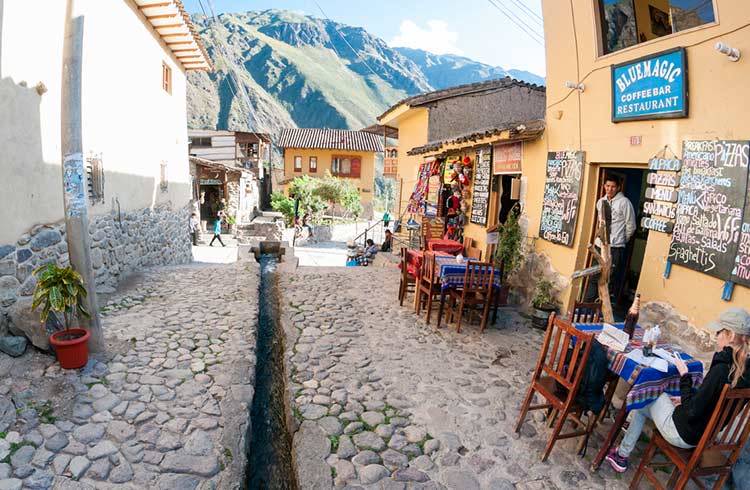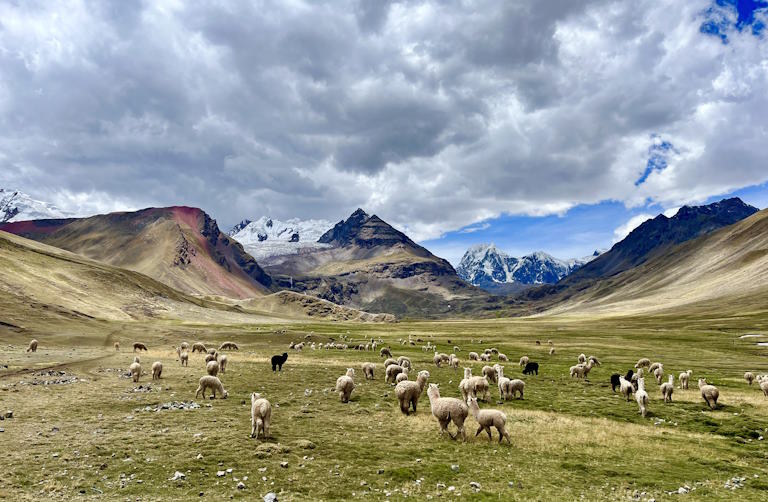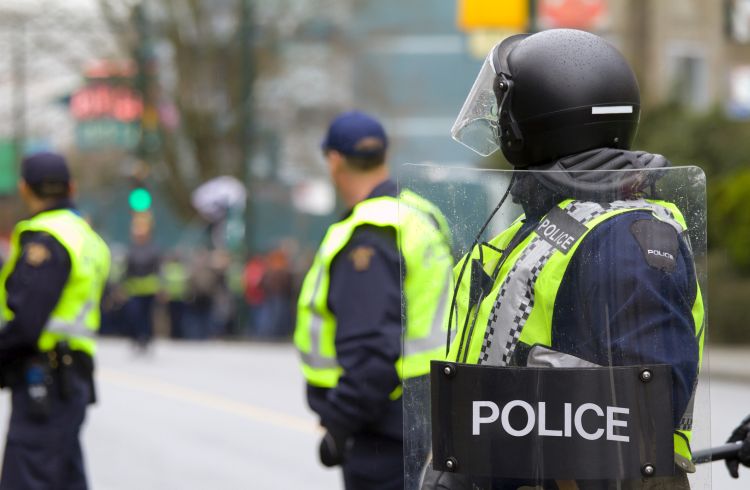Is Peru Safe? Essential Travel Tips for Visitors
How big a problem is crime in Peru? How safe are Lima and Cusco? Our travel safety expert shares his top tips for visitors, from petty crime to muggings and credit card scams.
 Photo © iStock/tbradford
Photo © iStock/tbradford
Is Peru safe to visit? While there are some risks for travelers, including petty crime and social unrest, it is one of the safer countries in Latin America if you take normal precautions, and most visitors have a trouble-free trip. Here's what you need to know about crime, scams, and safety in Peru.
- Petty crime in Peru
- Transport safety in Peru
- Emergency numbers
- Credit card and money crime
- Express kidnapping
- Muggings and armed robbery in Peru
- Women's safety in Peru
- Drink spiking
- Tourist police
- Civil unrest and drug trafficking
Petty crime in Peru
The threat of violent crime in most of Peru is no greater than in many of the world's major cities. Traveling around Peru is relatively safe, and the Shining Path Maoist rebel group has been largely disbanded. The US State department currently rates Peru as a Level 2: Exercise Increased Caution due to crime, civil unrest, and the risk of kidnapping.
Despite continuing improvement, poverty is still a problem in Peru, and the country is known for petty crime. In 2024, the most common crimes are robbery and attempted robbery, followed by scams. A rise in armed robberies and cell-phone thefts in touristed areas of Lima has led to an increased police presence and new measures to protect tourists.
This doesn't mean you need to be forever clutching your valuables to your chest, but you should practice your street smarts.
Here are some tips to keep your valuables safe:
- Dress casually when you are out and about in towns and cities.
- Photograph or photocopy your passport, travel documents, bank cards, and driver's license before you head to Peru. Leave those copies at home or on a virtual drive.
- Don't carry any more cash than you need for the day and keep it along with your passport and documents close to your body.
- Keep your camera packed away when not in use. Consider using a reinforced bag strap and camera strap.
- At restaurants, avoid hanging your bag over the back of a chair – keep it in sight and close. Similarly, don't leave your wallet or purse sitting on the tabletop which makes for an easy snatch-and-grab.
Distraction is a favored technique of petty criminals around the world. Someone distracts you by spraying sauce or paint on your clothing, falling in front of you, or dropping change at your feet, and then thieves use a razor to cut bags open, swoop in and grab any loose luggage or simply snatch and run.
Beware of groups working at tourist hotspots, crowded markets, bus depots and in hotel lobbies.
Transport safety in Peru
Some travelers have had their passports, wallets, and other possessions stolen while sleeping on buses. Try to keep your wallet and passport on you while you're snoozing.
Travelers have been robbed or assaulted by unlicensed taxi drivers. Never hail a taxi on the street – instead, use a phone dispatch service or a taxi service app or ask your hotel to book one for you.
Be careful when arriving at Jorge Chavez International Airport in Lima, and at bus terminals. Bogus taxi drivers and thieves posing as tour operators sometimes approach arriving passengers. At the airport, use one of the official taxi companies at the desks outside the arrival hall.
Emergency numbers
- Police: 105
- Medical emergencies: 117
- Fire: 116
Credit card and money crime
Credit card fraud is widespread in Peru so always keep your card in sight when making purchases and if the shop assistant is taking too long to give you a receipt, it's possible they are skimming your card. Keep an eye on suspicious transactions in your bank account while traveling and after you arrive home.
ATM fraud is also common, so withdraw money at an interior location (such as a bank) where possible and avoid ATMs in dodgy-looking parts of town.
Counterfeit notes are in circulation. If you need to exchange money, only use reputable places such as banks or foreign exchanges within hotels.
Avoid exchanging money on the streets as the risk of receiving counterfeit money increases. There have been reports of street money changers in Cusco fraudulently using intis, a currency no longer in circulation. You may be also not given the exact amount of money exchanged due to sleight of hand tricks by the money changer.
Planning a trip to Peru? Find out how travel insurance can cover lost or stolen baggage, medical emergencies, or other mishaps.
Express kidnapping
Express kidnappings have become more frequent, as the frightening practice spreads across Latin America. Travelers are held against their will and forced to tour the city's ATMs, extracting as much cash as the thugs can squeeze out of your account.
Having a separate traveling account you can top up as needed means you won't be left penniless if this happens to you. It's also a good way to make sure card skimmers can't bankrupt you behind your back.
In most cases, the victim is released quickly after the withdrawal limit is reached, although some have been held for several days until the account is well and truly emptied. Never fight back against your kidnappers. Things can be replaced, but you can't.
Muggings and armed robbery in Peru
Muggings are common in Cusco, Arequipa. and Lima, unfortunately. The Sacsayhuaman ruins that overlook Cusco have a reputation for muggings, especially at sunset and sunrise. If you do visit, make sure you're in a group.
Muggings tend to occur in dark, quiet areas when the victim is alone. For this reason, wandering by yourself isn't a great idea, especially at night. Even if you're traveling with a group, it's a good idea to take a taxi after sundown.
Armed criminals known as “river pirates” have also been known to target visitors cruising in the Amazon region. Travel with a reputable cruise company or boat tour operator and ask what their security arrangements are. If passing through a region that has been designated as a “Reconsider travel” zone by government travel advisories, be sure to stay on your boat.
In the event of an armed robbery, do not attempt to resist attackers or do anything that puts you at risk.
Women's safety in Peru
Women travelers can feel generally confident while in Peru, but should expect to draw some attention, especially if traveling alone. Fortunately, this attention often manifests itself as protective treatment from locals.
However, sometimes you may get some unwanted advances or comments from smooth-talking locals known as bricheros. These are usually abandoned as soon as you express your discomfort but if you feel unsafe, talk to a security guard or duck into a shop or restaurant.
Women should be particularly careful to avoid isolated areas and should not get into cabs alone. Hitchhiking is also a bad idea.
Groping does happen on the cramped minibusses (combis). Should it happen, let the driver or ticket seller know. There is also nothing wrong with causing a scene to embarrass the offender in front of other passengers.
If traveling to more rural areas, dress more conservatively. Some female travelers also recommend wearing a ring to appear married.
Drink spiking
Stay alert to the possibility of drink spiking. Hallucinogenic plants, generally part of traditional shamanic rituals, have been used to render tourists senseless before a robbery or assault. Never leave your drink unattended and don't drink anything you didn't buy yourself, or at least see poured.
Be wary of Ayahuasca tourism, as it is unregulated and can have adverse physical and psychological effects. Ceremonies often take place in remote areas with little or no access to medical or mental health facilities.
Tourist police
If you are the victim of a theft or assault, the Policia de Turismo (Tourism Police) should be your first port of call. Established specially to protect you and the lucrative tourism industry, they speak at least some English and are trained in handling all sorts of crimes against tourists.
The nearest POLTUR office will be able to provide case reports if something is stolen and will contact your embassy in the event of any more serious crimes.
Civil unrest and drug trafficking
Despite rumors about the danger of traveling overland in Peru, there is really not much to be worried about.
The country's two major rebel organizations, the Sendero Luminoso (Shining Path) and Tupac Amaro Revolutionary Movement (MRTA) have largely dissipated. The remnants of the Shining Path are still active in some of the main coca-growing regions of central Peru (Alto Huallaga, Aguaytia and VRAEM river basins). Attacks against the police and local authorities do happen on occasion.
Additionally, many government travel advisories have issued a "Do not travel" notice regarding areas near the Colombian border and the Valley of the Apurímac, Ene, and Mantaro Rivers (VRAEM) due to narcotics trafficking and organized crime.
Bear in mind, the possession of any drugs is considered a very serious offense in Peru, carrying lengthy jail sentences.
Travelers to Peru are more likely to be impacted by protests and demonstrations. Early 2023 saw a wave of protests around the country, including a blockade that restricted access to the Machu Picchu ruins. Research the route you plan to take in case of road closures, and steer clear of demonstrations in case they turn violent.
Related articles
Simple and flexible travel insurance
You can buy at home or while traveling, and claim online from anywhere in the world. With 150+ adventure activities covered and 24/7 emergency assistance.
Get a quote

No Comments